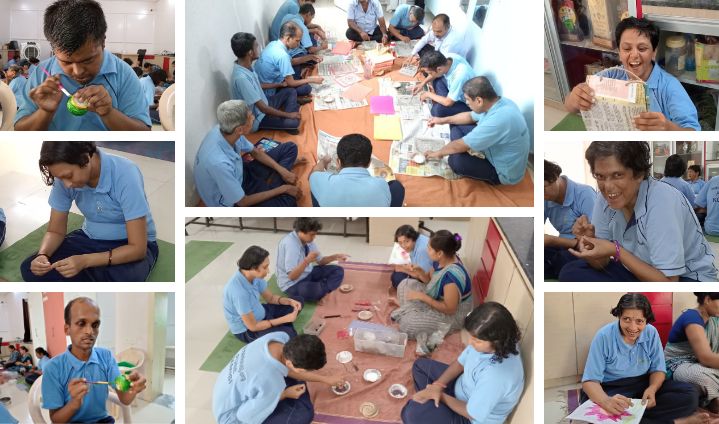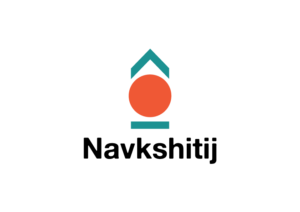
Introduction
Every human being has three basic needs: food, shelter, and clothing. We all strive to meet these needs for ourselves and our families. Individuals without intellectual disabilities understand concepts such as employment, self-respect, and interaction with others in the workplace. However, persons with intellectual disabilities (PwIDs) and mentally challenged adults often lack awareness about job processes, interview procedures, and work environments. The concept of sheltered workshops has been developed to address this gap.
What are Sheltered Workshops? Sheltered workshops provide employment and training opportunities in a safe environment for individuals with intellectual disabilities and mentally challenged adults. This concept plays a crucial role in the rehabilitation process for these individuals.
Benefits for Individuals with Intellectual Disabilities and Mentally Challenged Adults
1. Safe Working Environment:
Individuals with intellectual disabilities or cognitive impairments may not fully understand safety precautions such as avoiding electrical hazards or operating machinery. Sheltered workshops provide a safe, disability-friendly environment, where these risks are minimized. They work under the supervision of trained staff and alongside their peers in such safe settings, where potential hazards are significantly reduced.
2. Maintaining Dignity and Emotional Well-being:
Individuals with intellectual disabilities or mentally challenged adults often have difficulty expressing themselves clearly. In sheltered workshops, the staff are trained and sensitized to work with these individuals effectively. Unlike typical workplaces, such as factories or malls where there is a high risk of teasing and harassment, sheltered workshops provide a more supportive environment. Here, individuals with intellectual disabilities work alongside trained staff and peers who understand and respect their needs. This supportive setting significantly reduces the likelihood of harassment and teasing, thereby helping them maintain their dignity and emotional well-being.
3. Platform for Refining Pre-Vocational Skills:
Before the age of 18, individuals with intellectual disabilities or those diagnosed with developmental disabilities often learn pre-vocational skills in special schools or daycare settings. Sheltered workshops provide an opportunity to refine and apply these skills in a real-world context. Without such workshops, there is a risk that these skills may be forgotten or underdeveloped once the formal education ends.
4. Engagement:
Engagement in meaningful activities is crucial for everyone’s mental well-being. Individuals with intellectual disabilities or mental challenges who are not engaged in activities may experience behavioral issues. Sheltered workshops help by involving them in activities like diya making, file creation, and garland making. These activities are tailored to align with every PwID’s individual disability level and IQ, ensuring productive engagement and effective handling of any behavioral issues.
5.Lifetime Placement:
Duration of employment is a crucial aspect of the rehabilitation process for PwIDs and mentally challenged adults. Often, those with mild to moderate intellectual disability find jobs in factories or malls but may leave these positions after just four to six months. This premature exit can occur due to various reasons: experiencing abuse from staff or supervisors, feeling fearful, or struggling to adjust to the workplace environment. These challenges can lead to increased demotivation and behavioral issues, reinforcing the belief that they are incapable of working or lacking in skills.Sheltered workshops address this issue by offering lifetime placement opportunities. In these environments, there is no entrance exam, competition, or expectation of high performance. The supportive and understanding atmosphere allows the PwIDs to remain engaged and employed for as long as they wish. The resultant stability helps build confidence and reduces the likelihood of behavioral issues, providing a consistent, nurturing environment that supports their long-term well-being and development.
6. Social and Personal Skills Development:
Developing social and personal skills is essential but often challenging for PwIDs and mentally challenged adults. Sheltered workshops facilitate this by involving them in activities like shopping for materials and participating in markets. These activities help PwIDs and mentally challenged adults learn how to interact with shopkeepers and customers, thereby improving their social skills. Additionally, trained supervisors create individualized rehabilitation plans to further aid their development.
The Navkshitij Initiative
Navkshitij is committed to the residential rehabilitation of PwIDs and mentally challenged adults. We currently support 85 PwIDs with the assistance of 60 trained staff members, across three residential units. Every unit runs a sheltered workshop, where all the residents actively participate daily.
We have modernized the concept of sheltered workshops to ensure that it meets contemporary standards. We use online attendance and thumb verification systems, just like typical workplaces do. Every morning at 10 a.m., residents clock in using thumb impression; similarly, they clock out at 4.30 p.m. At the end of every month, the PwIDs receive a small salary for their work, which brings them a great deal of happiness, satisfaction, and dignity.
Once a year, we organize an annual shopping program where our PwIDs and mentally challenged adults purchase clothes, gifts, and other items for their families. Although the budget is modest, the emotional value of these gifts is priceless. This initiative not only fosters self-dependency but also nurtures altruism. The joy of shopping for and giving gifts to their parents and siblings is a profound experience. Despite their intellectual disabilities, our residents have a deep emotional awareness and understanding. This serves as a reminder to us that they are only intellectually disabled and not emotionally challenged. They are quite aware of their family members’ likes and dislikes, making the gifts all the more meaningful.
This initiative highlights the numerous benefits of sheltered workshops for individuals with intellectual disabilities and mentally challenged adults, demonstrating how such programs can significantly enhance the quality of life and emotional well-being of PwIDs.
Conclusion:
Individuals with intellectual disabilities and mentally challenged adults deserve dignity, respect, and a supportive work environment. Sheltered workshops offer a safe, caring, risk-free space that addresses their needs and adds to their emotional and physical well-being. By focusing on their unique abilities and providing tailored support, sheltered workshops play a vital role in enhancing their quality of life and fostering self-dependence.
Be A Part Of Our Spread Happiness Movement
Bringing Happiness: Lighting Up The Lives Of Special Friends Donate– Your contribution directly supports our programs and services, ensuring that persons with intellectual disabilities (PwIDs) receive the care and support they deserve. Register- Join our community as a volunteer or supporter to stay updated on our initiatives and opportunities for involvement. Spread The Word- Share our mission with others to raise awareness and advocate for the rights of PwIDs, amplifying the impact of our work .#BringingHappiness #LifeatNavkshitij #LightingThePath
